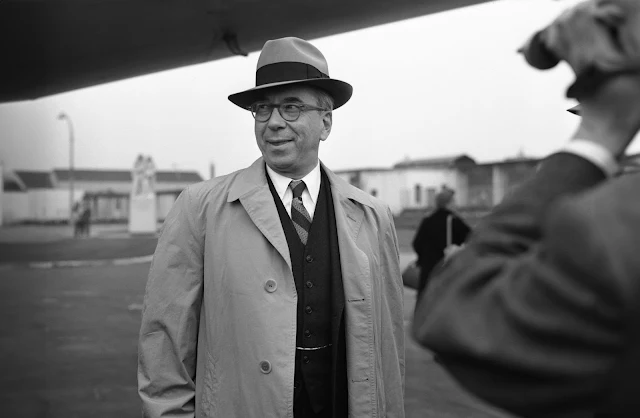EnterLibrary -- Lewis Strauss may not be a household name, but his impact on American history, particularly in the realms of nuclear energy and government service, is nothing short of remarkable. In this article, we'll delve into the life and contributions of Lewis Strauss, a man whose legacy continues to shape our world today.
Early Life and Education
Born on January 31, 1896, in Charleston, West Virginia, Lewis Strauss hailed from a family of accomplished individuals. He attended the prestigious Haverford College and later earned a law degree from Columbia University. His education laid the foundation for a future marked by public service and leadership.
Government Service and the Atomic Energy Commission
Strauss's public service career took off during World War II when he joined the Navy and worked on matters related to nuclear energy and weapons. His expertise in this field led to his appointment as Chairman of the U.S. Atomic Energy Commission in 1953 by President Dwight D. Eisenhower.
Under Strauss's leadership, the Atomic Energy Commission played a pivotal role in advancing the development and regulation of nuclear technology. His commitment to promoting peaceful uses of atomic energy, while maintaining national security, remains a hallmark of his tenure.
Challenges and Controversies
Strauss's tenure as Chairman was not without its challenges and controversies. He faced criticism and opposition, particularly regarding his stance on nuclear testing and security issues during the Cold War era. However, his unwavering dedication to his principles and his vision for the responsible use of nuclear energy left an indelible mark on American policy.
Legacy and Impact
Lewis Strauss's contributions to nuclear energy policy and government service have had a lasting impact on the United States. His work helped shape the nation's approach to nuclear technology, influencing not only its military capabilities but also its energy production and nuclear safety regulations.
In conclusion, Lewis Strauss may not be a household name, but his history is intertwined with critical chapters of American history. His leadership in nuclear energy and government service left a legacy that continues to influence our world today. As we reflect on his life and contributions, we recognize the significance of individuals like Strauss in shaping the course of history.

